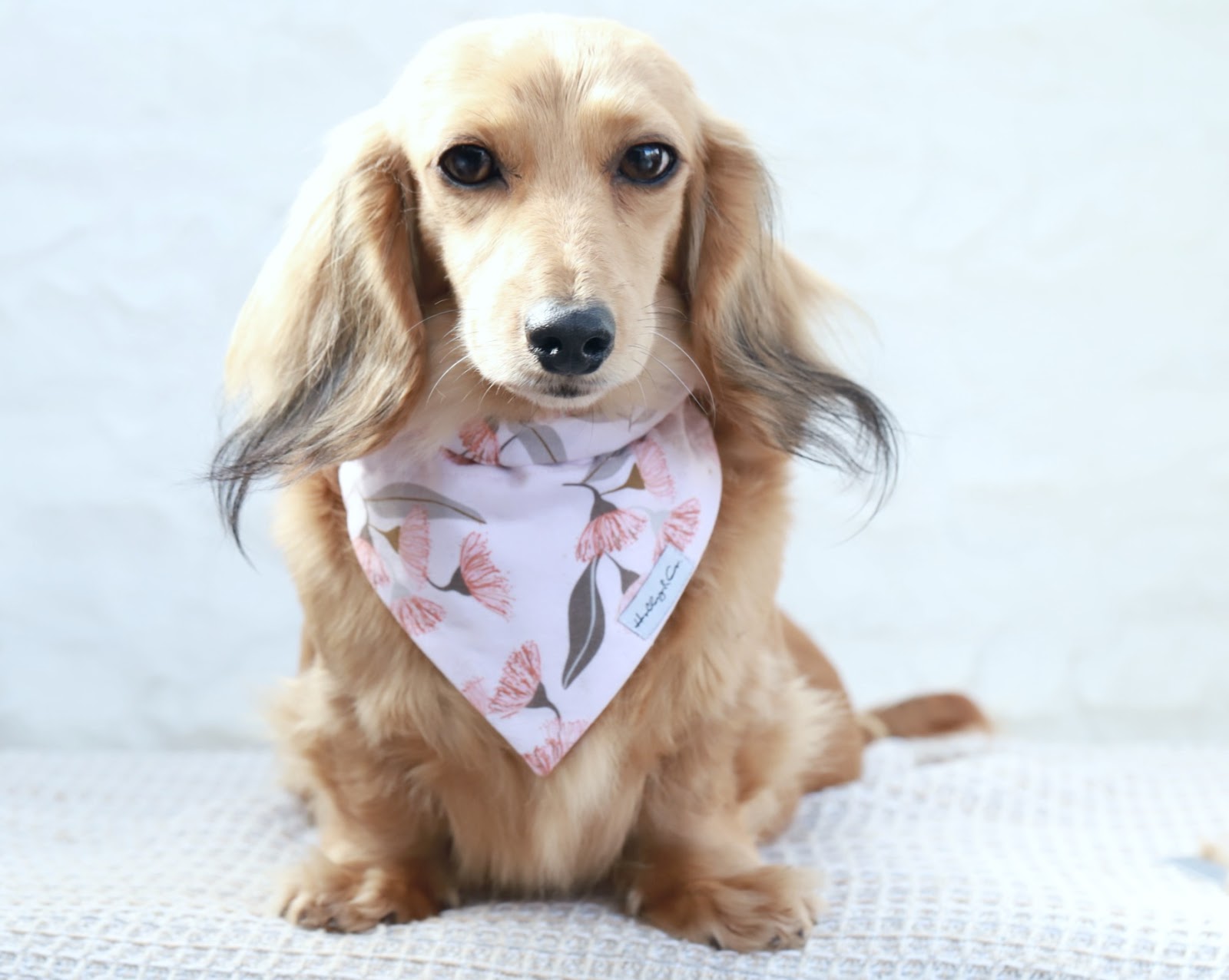When Will My Dachshund Puppy Grow Up?
When will my dachshund grow up? Why does it seem like they are going backwards in their training and not listening? Why is my puppy growling at things they’ve seen a million times before? These are all questions that we are commonly asked by our Hillhaven Dachshund families.
Did you know, that like human babies, puppies go through different periods of learning? New owners should be aware of this so that they know what to expect from their puppies at each stage, and how best to deal with the changes in their puppy in each stage. It will also help you to train them to become lifelong companions with you and your family.
Here are the different stages a puppy goes through, as well as what we do at Hillhaven Dachshunds to help them through each stage!
Neonatal Period (0-13 days)
At birth a puppy is totally dependent on its mother in all aspects. Puppies are born blind and deaf and very helpless. The puppies senses are very limited, only having smell, needed to locate mum and her milk, touch, also helpful to locate mum and be able to feed, and its little heat-seeking nose, providing it the ability to locate mum and siblings and help keep warm, even though at this age the puppy is unable to regulate its body temperature, and needs that provided by mum and siblings as well as an external source to keep the puppy at the appropriate temperature. He uses a suckling reflex to attach to the teat for feeding. He receives the needed antibodies from the mother’s milk to provide much needed immunity to protect from illness . These antibodies are primary components of the milk (called colostrum at this stage) for the first 24 hours.

hillhavendachshund
Even though the puppy can’t move in a coordinated fashion he can move quite adaptly by pushing with his hind legs and pulling with front legs to reach mum, using the senses available, smell, touch and heat seeking nose. The puppy has the ability to whimper, and cry which instantly alerts mum to the puppies needs. Puppies are unable to urinate and defecate without assistance as well. The mother will lick him to stimulate him to urinate and defecate and the mother eats this to keep his environment clean and free from odour and ensure the puppy isn’t cold by remaining in wet soiled bedding. This is a natural instinct that mothers have to ensure that predators dont smell her puppies.
Even though puppies in these first 2 weeks cant see or hear anything it is still imperative they are appropriately stimulated to ensure they are able to develop to their maximum potential. Each puppy needs to be handled and stimulated daily. They need at least to be picked up, stroked all over, turned onto their tummies, and gently shown affection to, ensuring that their sense of touch is stimulated. They need to be kept appropriate temperature, (not too hot or cold, as they cannot thermoregulate), dry (even though mums do a great job cleaning up after them, particularly with a big litter this can be harder and bedding needs changing daily).
To ensure each puppy is gaining weight appropriately, and some puppies are not pushing the weaker ones away it is imperative puppies are weighed daily and weights recorded. This will ensure any drops in weight gain are picked up and appropriate steps are taken to ensure good weight gains. It is estimated a puppy should double his birth weight in the first 7-10 days of life, so daily weights helps keep track of this.
Transitional Period (13-20 days)
This stage from 2-3 weeks is a transitional phase from total dependency on mum to being a little more independent. At around 2 weeks the world begins to open for the puppy. Their little eyes begin to open, and even though they are open, sight continues to develops over the next couple of weeks. Ear canals begin to open, and they can begin to hear for the first time. Taste starts to develop and their sense of smell improves. There little whimpers develop too and little barks and yips can be heard. Positive stimulation continues to be important during this stage, as neural pathways are forming.
They are learning to thermoregulate (control their own temperature) and become more coordinated in their movements, and can move away from, or to heat sources as needed. They begin to get up on their little wobbly legs and attempt walking, rather than the early crawling, pulling/pushing movements. This takes time to perfect but puppies persistently practice until it’s mastered. They can now urinate and defecate independently, but mums still generally clean the puppies, as still wants her area clean and dry.
They begin to take an interest in their littermates and the first signs of play emerge. This is when experiences and information is remembered by the puppy, and brain waves change.
Awareness Period (21-28 days)
3-4 weeks is a huge awareness time for puppies, and enormous changes take place in their development. They become less dependent on mum and more interested in their siblings and their environment. They begin to play with each other and take an interest in toys. They begin eating and drinking less from mum. They begin to explore, their walking ability is much improved and by 4 weeks they are often running. Their need for stimulation is imperative, being exposed to different sounds, sights, smells, tastes, even textures that they walk on all improve the neural pathways developing.
Canine Socialisation Period (21-49 days)
4-6 weeks puppies are learning a lot, mostly still from siblings and mum, which will help them in their interactions with people and other dogs in their new homes, including the all important bite inhibition. They learn if they bite their siblings too hard they yelp and bit back and mum bites back or growls a warning. Their teeth are emerging, which enables them to try more food. They are content and confident to leave mum for longer periods and become more independent from mum but siblings take on a very important role. They are able and wanting to form relationships with people, and need lots of play time with people of all ages as possible in a safe and controlled way. Mum is spending less time away from her puppies towards the end of this stage and puppies are getting more interested in their environment and learning from people
First Fear Stage
At 7-9 weeks their senses are fully formed and their first fear stage begins at 7-8 weeks, which means interactions with people, animals and the environment need to be controlled but varied and stimulating. If the puppy experiences bad or frightening things during this time it can have a lasting effect on the adult behavior.
Human Socialisation Period (5-17 weeks)
Weeks 5-17 (4-14 weeks some studies show), is a critical socialisation period where the puppies experiences during this time can affect their adult behaviour. This is the time where puppies need to become familiar and comfortable with all they may encounter in their environment. Part of this time is while the puppy is in our care, so it’s imperative lots of stimulation is provided during those first 8-10 weeks, and the new owners are aware of the need for ongoing socialization. Education is very important for the new owner to be made aware of these 2 important phases , first fear stage and the window for socialization, happening simultaneously as the puppy begins his new adventure in his new home.
The puppy bonding period begins at week 7, and between 8 and 10 weeks is the optimum time for a puppy to leave his first home and bond with his new family. We encourage owners to be able to take their puppies home as close to 8 weeks as possible as we dot want them to missout on this critical bonding time.
This is also a huge adjustment in a puppy’s life and needs to be handled sensitively and proactively, as it can have a huge impact for the adult doggy life. As much as can be kept the same during this transition, the most beneficial it is, so diet, general care and routine, and familiar smells with toys and blankets can all help with this adjustment, as well as lots of education for the new owners.
During a puppies first 3 months of life incredible changes take place in a puppy’s physical, emotional, sensory and brain development. This is a critical time in that what happens during this time of his life will affect his adult life, not only physically but the way his brain grows and develops. It is imperative that the puppy is surrounded by people who provide a richly stimulating, loving environment with as many and varied positive interactions and stimulation to ensure the puppy is able to grow and develop to his maximum potential
Seniority Classification Period (10-16 weeks)
This is the time when puppies try to work out who is the boss in their new home. They are independent and confident and are keen to be the boss if you let them! They will test you to work out what they can and can’t do. Correct any behaviour you don’t wish to continue with positive reinforcement so that they know what is good behaviour and what isn’t acceptable. They will start biting and mouthing everything during this time You will need to redirect this behaviour onto something they are allowed to bite!
Second Fear Impact Period Stage (4-14 months)
Another major change is occuring for your dachshund. They will start testing you again! Sometimes they will seem to purposely ignore you and it may seem like they are regressing a little bit. Continue the positive reinforcement, and the redirecting of behaviour – I promise, it will be worth it in the end! In the meantime though… keep your shoes and valuable items out of my reach!
They may become worried in some new situations, and even old ones which have never been fearful of before may become a problem. Stay positive, and use positive reinforcement rather than punishment to help your puppy during this time. Also make all new experiences fun. Give treats or lots of cuddles when going or doing something new!
At this age they may start growling at new (and sometimes known) people. They also may also start growling towards dogs or people and defending what they have come to know as mine. Reassure them they are safe and that everything is ok
Maturity (1-4 years)
If you have trained your dachshund well, during this time that you will reap the benefit! They will listen and obey commands (consistently!) and will be part of your family, showing total loyalty and devotion.
